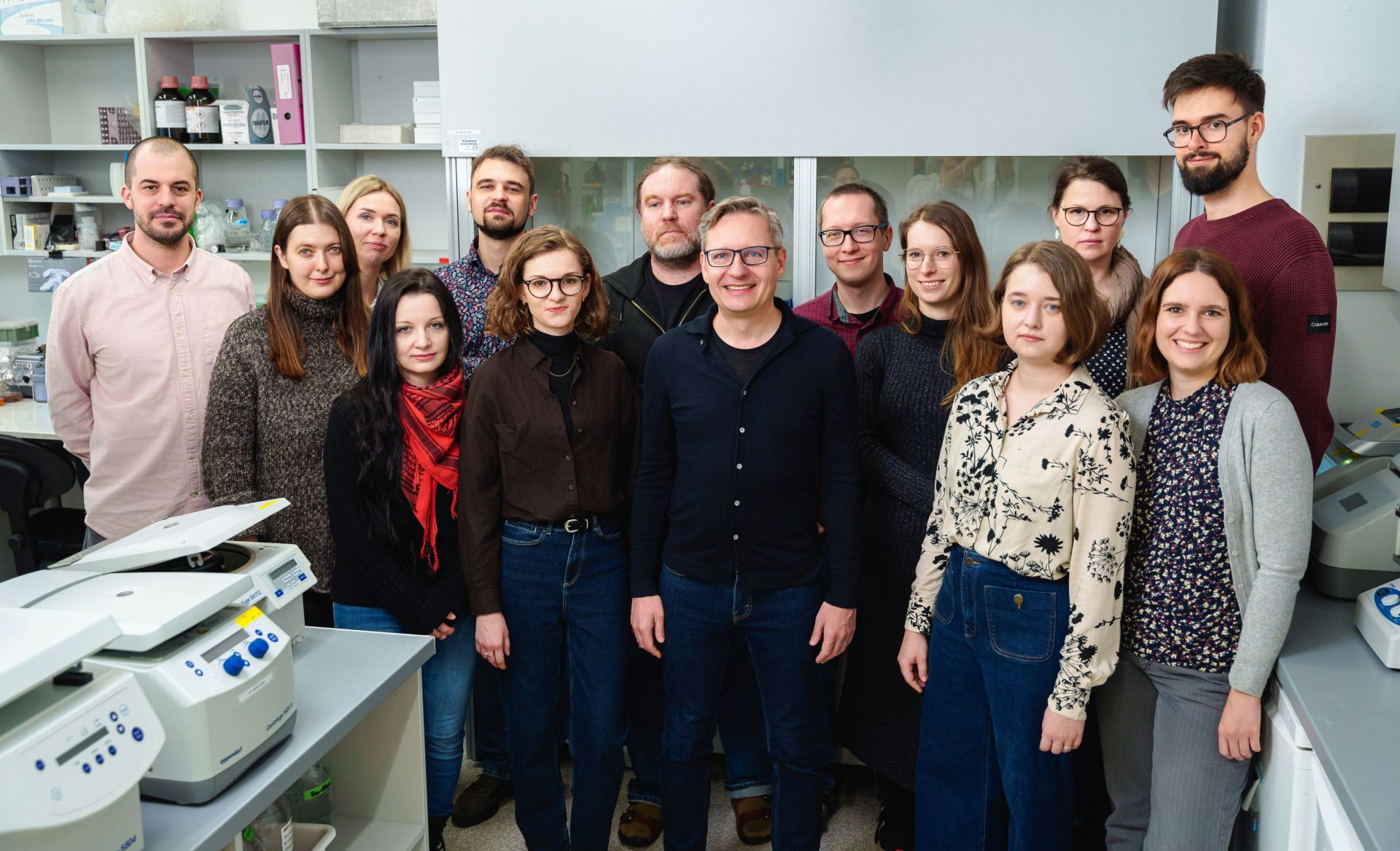The first life sciences publication in Nature in the 21st century produced entirely by Polish research institutions explains the enhanced efficacy of mRNA-based drugs and paves the way to new therapies.
On 17 April 2025, Prof. Andrzej Dziembowski and Dr. hab. Seweryn Mroczek, corresponding authors and a team of researchers from several Polish institutions, published an article in Nature. The project brought together academics from the International Institute of Molecular and Cell Biology in Warsaw (IIMCB), University of Warsaw, Medical University of Warsaw and Institute of Biochemistry and Biophysics, PAS. It is the first life sciences publication in Nature in the 21st century produced entirely by Polish researcher institutions. Their research was funded by (inter alia) the National Science Centre.
The authors described a previously unknown principle for enhancing the efficacy of therapeutic mRNAs. They identified the stabilising effect of TENT5A on mRNAs by extending their poly(A) tails.
“The stabilising effect of TENT5A on mRNAs is little known, yet universal. It has a great value for medicine where a broad range of mRNA applications is currently researched,” says Prof. Andrzej Dziembowski in a press release by the IIMCB in Warsaw.
Nanopore sequencing was used in research as well as tools developed by the team to measure poly(A) tail lengths. The researchers focused on, inter alia, Comirnaty and Spikevax vaccines that were widely used during the COVID-19 pandemic. They noticed that the poly(A) tails are extended in the immune cells, in particular in macrophages, which may affect the efficacy of the vaccine.
“Our road to have an article published in Nature was long and bumpy. We started to work on the project during the pandemic, in the middle of 2021. After the first draft was submitted, we were often asked for new information and amendments. We are particularly proud of the fact that it is the first life science publication in Nature in the 21st century produced entirely by Polish research institutions,” says Prof. Dziembowski.
He promises to use the latest discoveries to develop even more efficacious mRNA-based drugs.
The research described in the article was co-funded by the National Science Centre under projects performed by Seweryn Mroczek (SONATA BIS 10), Andrzej Dziembowski (OPUS 17), Agnieszka Tudek (SONATA 16), Monika Kusio-Kobiałka (SONATA 15) and Aleksandra Brouze (PRELUDIUM 19).

The researchers used the IN-MOL-CELL research infrastructure funded under the National Reconstruction Plan.
Article: Re–adenylation by TENT5A enhances efficacy of SARS–CoV–2 mRNA vaccines, Nature, 17.04.2025
Press release available on the website of the IIMBC.
